Our short night at Gin’s Guesthouse was restless. It was quite warm, and the wood floor was very squeaky in places. Every time Becky got up to go to the bathroom, Scott awoke thinking she had fallen because of the loud crack.
We arrived at the dock at 4:30 am and met another western couple – unfortunately they didn’t have tickets yet, and so hadn’t officially exited Thailand. The girl at the port pressed Scott into service to explain that they had to wait for the next boat. Luckily, this week there is a Friday boat. Scott talked briefly to them about their trip, but was soon urged to get our luggage down to the boat – a steep set of stairs, then across a larger boat and onto the fast ferry. Fortunately we were in enough time that it wasn’t too rushed.
The boat was quite nice, although the seats are fixed in position. Fortunately we were two of only four passengers, so there was lots of room to spread out. The crew of 6 or 7 actually outnumbered us.
The boat stopped several times along the Laos border, never stopping on the Burma side. Our first thought was, are we in the middle of something illegal? We aren’t sure why they stopped the first time, but the second time was to re-fuel, and the third time was to buy some fish from a local Laos fisherman. This must happen frequently, as the fisherman had a scale ready. Each time we stopped the boat dropped off a bag or two of fresh produce.
We were surprised by how much of the Mekong River shoreline is undeveloped. For much of the ride along the Laos and Burma borders, there is nothing. Occasionally, we saw some cleared forest where crops are planted high up on the steep sloped and some small villages. The Laos side seemed to be a little more developed than the Burma side. Once we reached the Chinese border, the amount of cultivation drastically increased, but there were still sections of jungle. We both expected to see many more people living along the Mekong.
The river is much rougher than we expected – fast moving with rapids along the way, and very narrow points. The water level is also clearly much lower than it used to be, since there’s sand and bare rocks up 2-3 meters from the current level. There was one place where the water level sign went up to 14 meters, and we were down below 2. Even with the rough conditions, the river still carries a fair amount of cargo. We passed at least 10 cargo ships along our journey. One of them had a cage full of water buffalo on its upper deck.
We were given a breakfast of a bag of sweet pastries and some soy milk. For lunch, we had a nice tray of rice, fish, and two vegetable dishes. We do recommend that if you take this boat you bring along a few snacks. Becky was happy that we still had some granola left, so she had a bowl at 5 pm when hunger hit again. Supper was not served on the boat.
Around 6 pm we arrived at a China Customs and Immigration post. This was well before Jinghong at Guan Lei. Several Customs officers came on board and did the most thorough search of our bags we’ve seen on the trip. They were very intrigued by our camp stove and pots, but didn’t ask us any questions. Just before they arrived, some CIQ (China Immigration Quarantine?) officers came on board, one spraying something on the deck of the passenger compartment, and the other two taking each person’s temperature. They used a handheld device which focused a red dot on our foreheads – perhaps using IR sensors? We guess that CIQ people probably got them in response to SARS, and have dusted them off in response to the Swine Flu.
After all this, we climbed many steps to the Immigration hall, where our passports were stamped, then we returned to the boat. All the officials we talked to spoke at least a bit of English, which made things a bit easier – perhaps part of the pre-Olympics training?
We continued upriver, and noticed everything is much more intensively cultivated here, with what look like tree farms planted on huge terraces going all the way up the mountains. Before we reached Jinghong, the land flattened out – lots of gravel beaches, with people on motorcycles in the middle of nowhere, apparently taking picnics.
Shortly after dark, when we were about 25 km south of Jinghong, we arrived at a ferry crossing and tied up. A small 20-passenger bus was waiting to take us, most of the crew, and a big pile of cargo (food, plants, boxes of various shapes, plus our bikes and bags) into Jinghong. The bus ride was very bumpy until we reached Jinghong, and on very narrow roads – probably better that we didn’t ride. We had very limited communication with our boat crew, but ability to point to words in phrase book (like “hotel” when we saw they wanted to leave us in the suburbs across the Mekong from downtown) proved very helpful.
Becky found us a nice hotel for 140 RMB, much better than the 40 RMB place she looked at previously. The hotel has the ubiquitous Internet-connected passport reader, which means Chinese immigration knows where we are each night.
We walked down the street and found a hole-in-the-wall noodle stand where we had the best noodles ever! Fresh noodles, very tasty and spicy but not too hot, with a flavor combination we’d never experienced before – a wonderful introduction to China. All this for only 3 RMB per bowl (about $0.50 CAD)
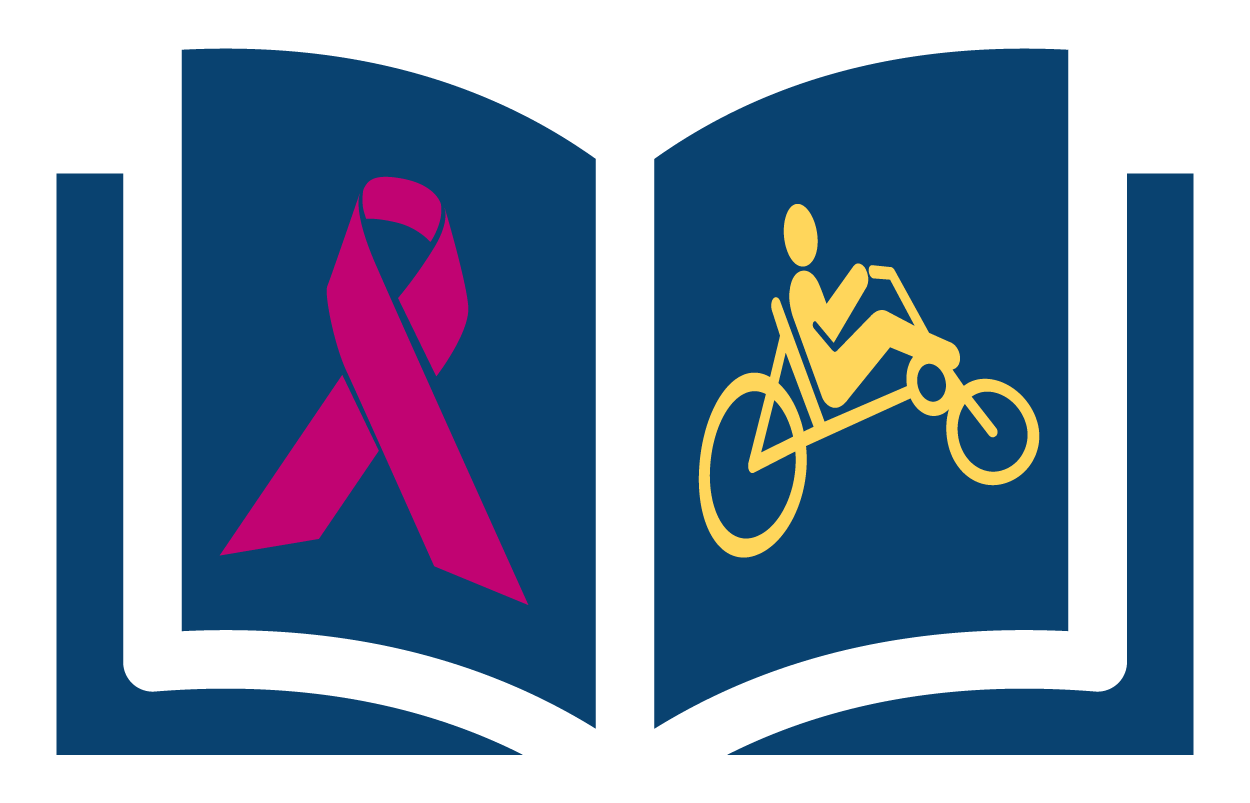
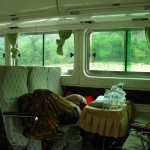
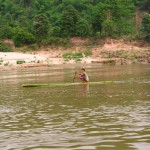
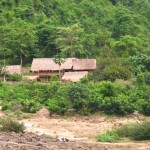
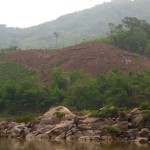
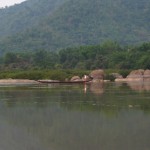
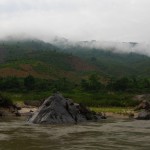
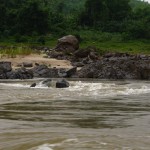
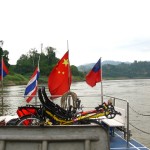
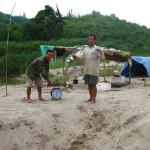
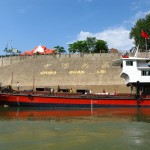
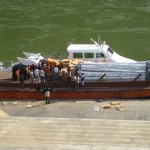
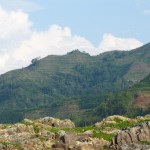
Leave a Reply